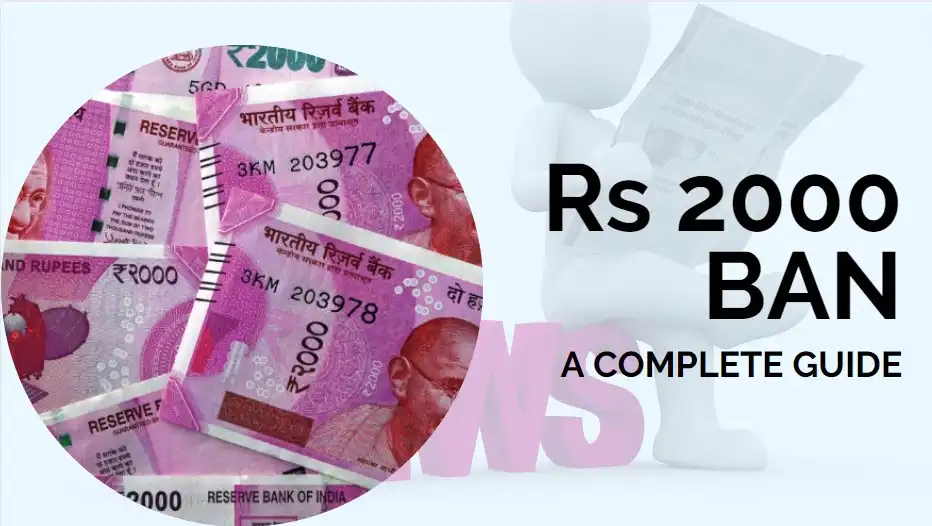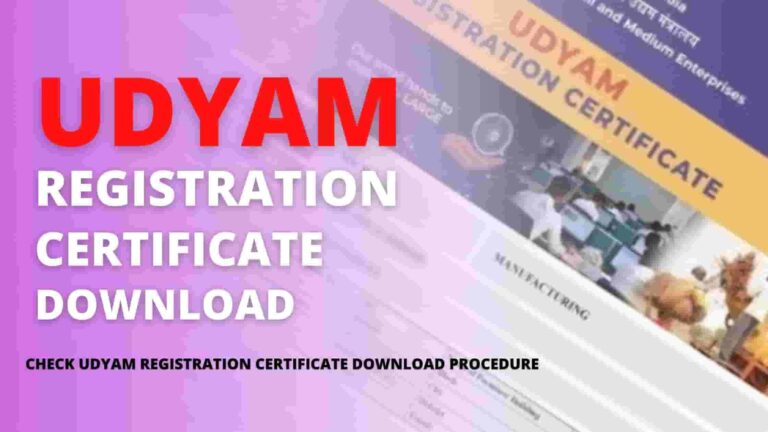Latest 2000 rs news ban as per RBI circular. Read more about 2000 Rs Note Withdrawal highlights.
In the realm of Indian currency, the introduction of the Rs. 2000 note in November 2016 sent waves of curiosity and intrigue across the nation. These high-denomination banknotes swiftly found their way into the pockets and wallets of millions, but the story behind their existence and the reasons behind their introduction remain less known.
In this article, we will delve into the features, significance, pros, cons, and potential future of the Rs. 2000 notes.
The History of Rs. 2000 Notes
The Reserve Bank of India (RBI) introduced the Rs. 2000 note as part of its demonetization initiative. This move aimed to curb the circulation of counterfeit currency and tackle the issue of black money. The intention was to eliminate high-value currency notes, including the Rs. 1000 note, which was discontinued simultaneously. The Rs. 2000 note stepped in to fill the void left by its predecessor and facilitate the smooth transition of currency.
Features of the Rs. 2000 Notes
The Rs. 2000 notes have several distinctive features that set them apart. They are predominantly magenta in color, with a portrait of Mahatma Gandhi at the center of the obverse side. The reverse side showcases the motif of Mangalyaan, India’s first Mars Orbiter Mission. The note carries various security features, both visible and invisible, to prevent counterfeiting and ensure authenticity.
Security Measures Implemented
To deter counterfeiters, the Rs. 2000 notes incorporate advanced security measures. These include high-quality security threads, latent images, color-changing ink, and intaglio printing. Additionally, the notes use micro-lettering, fluorescent ink, and optically variable ink that changes color when viewed from different angles. Such features ensure that genuine notes can be easily distinguished from counterfeit ones.
Pros and Cons of Rs. 2000 Notes
As with any currency denomination, the Rs. 2000 notes come with their fair share of advantages and disadvantages. Let’s explore them in detail.
Advantages of Rs. 2000 Notes
Ease of Transactions
The higher value of Rs. 2000 notes allows for convenient and efficient transactions, especially in cases involving large amounts of money. Individuals can carry fewer notes, reducing the bulk and potential risk associated with handling a large number of lower denomination notes.
Reducing the Number of Notes in Circulation
By introducing the Rs. 2000 notes, the RBI aimed to decrease the overall number of notes in circulation. This move facilitates the management and logistics involved in cash supply and cash handling operations, benefiting financial institutions and the economy as a whole.
Addressing the Need for High-Denomination Currency
There is a genuine need for high-denomination currency in certain situations, such as making significant purchases or transactions. The Rs. 2000 notes cater to these requirements, providing a legal tender that ensures convenience and security.
Disadvantages of Rs. 2000 Notes
Facilitating Black Money Transactions
Critics argue that the higher denomination notes can facilitate illegal activities, including money laundering and corruption. Due to their value, the ease of carrying and storing large sums of money in Rs. 2000 notes raises concerns about the potential misuse of these banknotes.
Counterfeiting Concerns
While the RBI has implemented various security features to prevent counterfeiting, the risk of counterfeit Rs. 2000 notes remains a valid concern. Criminals are continuously finding ways to replicate these notes, which poses a threat to the integrity of the currency and the trust of the public.
The Future of Rs. 2000 Notes
Over the years, rumors and speculations have emerged regarding the future of Rs. 2000 notes. Let’s delve into the truth behind these claims.
Rumors about Discontinuation
There have been rumors suggesting that the RBI plans to discontinue the Rs. 2000 notes. These rumors often circulate due to various reasons, including concerns about black money, counterfeiting, and the potential introduction of new currency denominations.
Potential Reasons behind Discontinuation Rumors
Some argue that the high-value notes are being phased out to discourage the hoarding of cash and promote digital transactions. Others believe that the discontinuation rumors stem from the challenges associated with managing the supply and demand of currency effectively.
Official Stance on the Matter
The Reserve Bank of India has not officially announced any plans to discontinue the Rs. 2000 notes. While the RBI continues to monitor and evaluate the efficacy of different currency denominations, the circulation and acceptance of Rs. 2000 notes remain unaffected.
Latest news on Rs 2000 note ban 19 may, 2023
The industry and political parties responded in a variety of ways to the Reserve Bank of India’s announcement on Friday to remove Rs 2,000 currency notes from circulation. While several business leaders predicted it would happen eventually, the opposition used the situation to make fun of the Centre government led by Prime Minister Narendra Modi.
The Reserve Bank of India (RBI) shocked everyone on Friday by declaring that Rs 2000 currency notes will be withdrawn from circulation but will still be considered legal cash. This announcement was referred to by many on social media as a “soft demonetisation” action. However, unlike when the government banned the Rs. 500 and Rs. 1000 bank notes in November 2016, this is not a demonetisation exercise. Instead, the RBI stated on Friday that the public can deposit or exchange their Rs 2000 notes steadily until September 30, 2023, and that the notes will continue to be considered legal money.
“…it has been decided to remove the 2000-rupee banknotes from circulation in accordance with the Reserve Bank of India’s “Clean Note Policy.” The 2000-dollar bills will still be accepted as legal money, the RBI announced on Friday (May 19, 2023).
According to the RBI, until September 30, 2023, members of the public may deposit Rs 2,000 banknotes into their accounts or exchange them for notes of other denominations at banks.
The RBI gave the following justification for doing so: “A bulk of the 2000 denomination notes were issued prior to March 2017 and are nearing the end of their expected life-span of 4-5 years. Additionally, it has been noted that transactions involving this denomination are uncommon. Additionally, the supply of banknotes in other denominations is still sufficient to meet the public’s demand for currency.
From May 23, 2023, the 19 Regional Offices (ROs) of the RBI with Issue Departments will also offer the ability to swap Rs 2000 banknotes up to the maximum of Rs 20,000 at a time.
The RBI’s decision to remove Rs 2000 notes from circulation was not unexpected, according to analysts, as their useful life was going to expire.
Rachit Sharma, DGM at Taxmann, commented on the RBI’s decision, saying, “The RBI decided to discontinue the Rs 2,000 banknotes because the life span of such notes is about to expire and they constitute just 10.8% of the total notes in circulation as of 31-03-2023.”
“Until September 30th, the Rs. 2,000 currency note will be accepted as legal cash. It is unclear at this time whether the Bank will request the PAN and Aadhaar in order to exchange the cash note.
“The withdrawal of INR 2000 rupee-denominated notes is an expected and timely move towards prudent currency management within the realm of maintaining banking and financial discipline,” stated Vimal Nadar, Head of Research at Colliers India. Such activities further cut down or perhaps do rid of the likely cash component in high-value real estate deals. RERA and demonetisation have significantly increased openness in real estate over the past few years, primarily helping to establish fair market value.
Why the RBI cancelled the Rs. 2000 notes and what you should do with the ones you have.
The Reserve Bank of India has decided to stop issuing currency in the amount of Rs 2,000 and has ordered everyone to swap their notes by September 30, 2023. However, the Rs 2,000 notes would still be accepted as legal tender.
We discuss the steps you must take and the reasons the RBI withdrew the notes.
Why are the Rs. 2000 banknotes being discontinued?
The RBI states that the purpose of the November 2016 introduction of the Rs 2000 denomination banknote was “primarily to meet the currency requirement of the economy in a timely manner following withdrawal of the legal tender status of all Rs 500 and Rs 1000 banknotes in circulation.”
The printing of Rs 2000 banknotes was discontinued in 2018–19 due to the achievement of that goal and the ample supply of banknotes in other denominations. The majority of Rs. 2000 notes were printed before March 2017 and are already nearing the end of their predicted life of 4-5 years.
The RBI has noted that transactions in this denomination are uncommon. Additionally, the supply of banknotes in other denominations is still sufficient to meet the public’s demand for currency.
In light of the aforementioned and in accordance with the “Clean Note Policy” — a policy set by the RBI to guarantee that the general population has access to high-quality banknotes — the central bank made the decision to remove the Rs 2000 denomination banknotes from circulation.
What should you do with your banknotes worth Rs. 2000?
The general public is welcome to visit bank branches to deposit and/or exchange any Rs 2000 banknotes they may have. Starting on May 23, 2023, until September 30, 2023, all banks will offer the option for deposits into accounts and exchanges for Rs 2000 banknotes.
How to exchage 2000 rs note in bank?
After the RBI announcement, here’s how to exchange your 2,000 rupee notes.
The Reserve Bank of India (RBI) stated on Friday that 2,000 currency notes would no longer be legal tender. The central bank stated that this is being done in accordance with its “Clean Note Policy” in a release.
Here are 5 highlights from the RBI announcement:
- According to the RBI, the 2,000 note will continue to be regarded as legal money, which means it can be used to settle debts. The bank also specified a deadline for withdrawing the note from circulation. By September 30, it requested that customers exchange them at banks.
- The exchange window for notes worth 2,000 will open on May 23, as the RBI wants to give banks time to make preparations. Additionally, 19 of the RBI’s regional offices will offer the ability to swap notes for 2,000 rupees.
- The maximum amount of 2,000 banknotes that can be exchanged exists. People are permitted to exchange up to 20,000 rupees at once, according to an RBI press statement. Additionally, they can speak with a Business Correspondent (BC), an outpost of a bank branch that offers banking and financial services in underserved and unbanked areas. In this instance, the daily cap is set at 4,000.
- A person does not have to be a client of the bank in order to exchange soon-to-be-discontinued currency. At any bank branch, a non-account holder may exchange up to 20,000 rupees worth of banknotes at once.
Conclusion
The introduction of the Rs. 2000 notes brought forth both advantages and concerns. While these high-value banknotes simplify transactions and address the need for high-denomination currency, they also raise worries about potential misuse and counterfeiting. Despite rumors of discontinuation, the future of Rs. 2000 notes remains uncertain. As with any currency, it is crucial for individuals to remain vigilant and aware of the features and security measures to ensure the authenticity of the notes they handle. The central bank has said it will withdraw Rs 2,000 notes from circulation and people can exchange or deposit them in their bank accounts by September 30.
FAQs on Rs 2000 note ban as per RBI
Can I still use Rs. 2000 notes?
Yes, Rs. 2000 notes are legal tender in India and can be used for transactions.
Are Rs. 2000 notes being phased out?
Yes, there is official confirmation about the phasing out of Rs. 2000 notes. They continue to be circulated and accepted.
What should I do if I receive a counterfeit Rs. 2000 note?
If you suspect a counterfeit Rs. 2000 note, it is advisable to report it to the nearest police station and cooperate with authorities to address the issue.
Will there be a new high-denomination currency in the future?
The introduction of new currency denominations depends on the needs and policies of the Reserve Bank of India. However, there have been no official announcements regarding the launch of a new high-denomination currency.
Where can I find more information about the security features of Rs. 2000 notes?
For detailed information about the security features of Rs. 2000 notes, you can visit the official website of the Reserve Bank of India. And also learn 2000 Rs NEWS ban or contact your nearest bank branch for assistance.
Follow us on Google News




